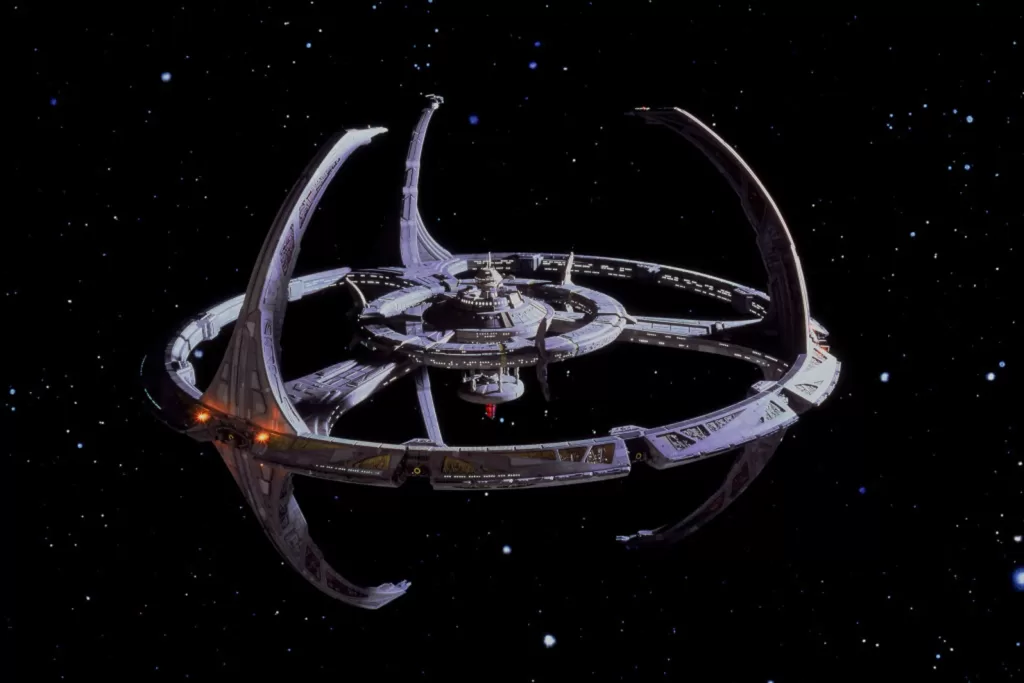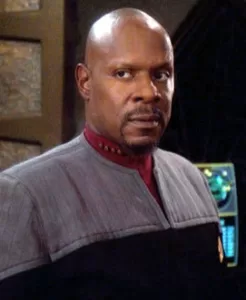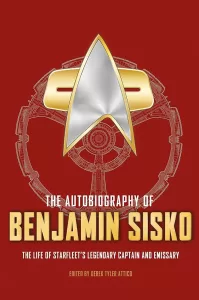The recently released novel The Autobiography of Benjamin Sisko tells the story of Starfleet’s celebrated captain, and Bajor’s Emissary of the Prophets, celebrating the 30th anniversary of Star Trek: Deep Space Nine… which for many is arguably the best Star Trek series ever to grace our television screens. The book’s author, Derek Tyler Attico, discusses his background as a writer, the impact of Star Trek, and his approach to the story in the below interview.
Can you tell us a bit about your background as a writer? How you got started, what led to your first published work, etc?

I started writing when I was ten after watching another sci-fi and cultural phenomenon, Star Wars (A New Hope). I wanted to learn everything I could about writing and screenplays specifically. When I was sixteen, I wrote my first screenplay (naturally, a Star Wars script). I gave the script to my high school English teacher to look over, and unknown to me, she entered it in a national contest, where I won an award for screenwriting.
After that, I applied to NYU Tisch School of the Arts and was accepted. However, even with financial aid, I couldn’t afford it. So, with that, I put my desire to write professionally aside and moved on. Then, in 2005, a friend told me about a yearly Star Trek anthology contest from Simon and Schuster, Pocket Books, called Strange New Worlds, which ran from 1998 – 2007. The best Star Trek short stories submitted by fans were selected and published in the anthology. It had been some time since I’d written anything, so I was delighted when my short story (Alpha and Omega) made it into the anthology and won first place! After that, it was clear that I needed to rekindle my dream of writing professionally.

What role has Star Trek, and, in particular, Deep Space Nine and Captain Sisko, played in your life?

Star Trek has had a profound influence on me, both personally and professionally.
Like many people worldwide, I have a personal relationship with Star Trek because of my parents. As a kid, TOS (The Original Series) with Kirk and Spock was the first television show I consistently watched with my Mom. I couldn’t have been more than six or seven, and watching “grown-up TV” with her made me feel older. I also realized the values and morals she was teaching me were the same I would see upheld by the crew of the Enterprise. This was the first time I’d seen this on a television program. Sometimes, my mom and I would talk about an episode for hours after we watched it.
Deep Space Nine and Captain Sisko were not just the embodiment of these values, but for the first time, for me, a personal reflection of them. Having Mr. Avery Brooks, a Black man, play the lead of a Star Trek series, in effect being the spokesperson for the franchise, meant everything. At the time (1993), there were Black leads on sitcoms (situation comedies) and in supporting roles in crime dramas. However, Deep Space Nine (DS9) was the first to showcase a Black actor in a serious lead role. Beyond that, I found the writing of DS9 always presented a candid realism that offered an authentic perspective of the 24th century. I can only hope watching the show has influenced my writing.
 What was your approach to writing The Autobiography of Benjamin Sisko and bringing to the page such an iconic character?
What was your approach to writing The Autobiography of Benjamin Sisko and bringing to the page such an iconic character?
I never thought of the book as an autobiography, but simply a father’s message to his son. Out of framing that message from father to son, I knew the secondary goal would be an autobiography. Once I adopted this view, everything became clear. Like the show, the book and Ben’s origin story became primarily about family, about people and the choices we make in life instead of technology and starships.
What was your favorite part about writing the book, and what was the most significant challenge?
Creating Ben’s family and telling their story within his was a lot of fun and the book’s most challenging part. At no point did I want these individuals to feel like secondary characters of convenience. In our lives, family are the ones we lean on and learn from, and I wanted this to be reflected in the autobiography.
Is there anything about the book that would surprise readers or might be unexpected?
There are many surprises in this book. Foremost, I think, is that readers don’t have to be fans of Deep Space Nine or Star Trek to enjoy this book. I wrote this in such a manner, so if you only have a passing familiarity with Star Trek (maybe you haven’t watched it since you were a kid), you will enjoy this book just as much as the consummate fan! Also, the book has between fifty to a hundred easter eggs and covers every Star Trek series (old and new) for fans. The autobiography also covers some very unexpected territory in the Star Trek universe.
The Autobiography of Benjamin Sisko is now available in hardcover and e-book.
